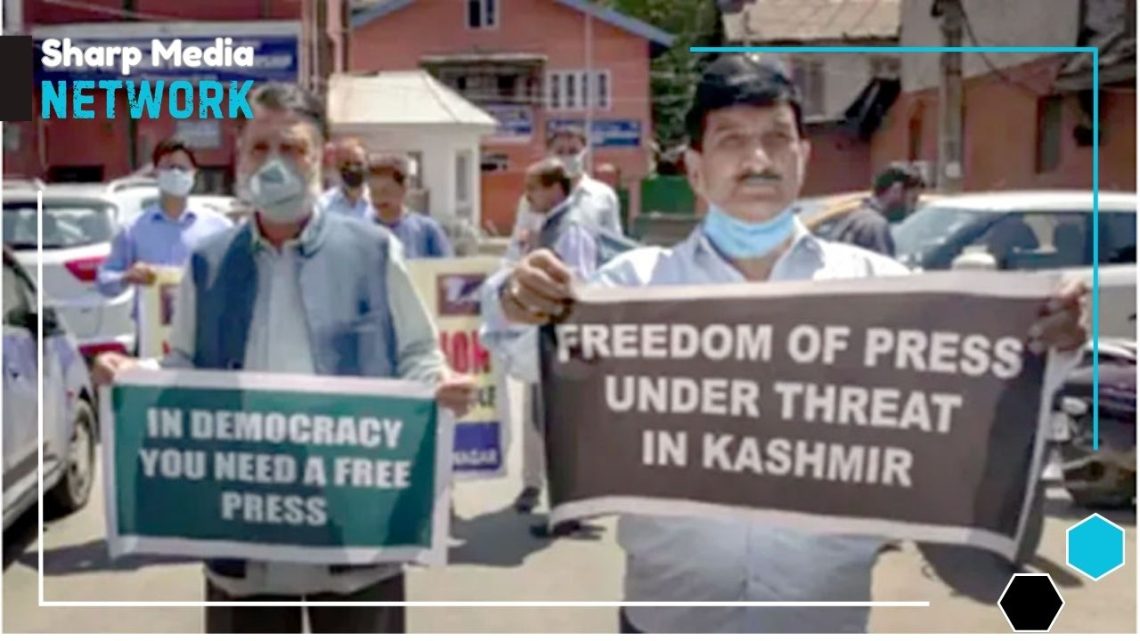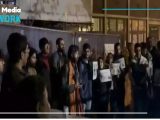
Silencing the Press: A Timeline of Media Repression by India in IIOJK
November 20, 2024The erosion of press freedom in Indian Illegally Occupied Jammu and Kashmir (IIOJK) since 2019 paints a grim picture of systematic suppression. Following the revocation of Article 370, journalists, activists, and professionals have faced increasing restrictions. India’s approach underscores a disregard for democratic values and human rights, as evident in its clampdown on free speech and the media.
Curtailing Mobility and Expression
Award-winning journalists and professionals attempting to work abroad have been blocked from traveling, with passports impounded without explanation. The lack of transparency about such actions reflects India’s ongoing human rights violations, effectively silencing critical voices and stifling dissent.
Timeline of Repression
A series of troubling events illustrates India’s aggressive stance toward media freedom:
- August 4–6, 2019: An unprecedented communication blackout, suspension of newspapers, and the banning of public assemblies under Section 144 showcased India’s intent to paralyze information flow. Journalists were harassed, with many unable to report freely.
- 2019–2020: Journalists like Qazi Shibli, Gowhar Geelani, and others faced arrests, intimidation, and restrictions under draconian laws like the Public Safety Act (PSA) and the Unlawful Activities (Prevention) Act (UAPA). Self-censorship became widespread.
- April 2020: Photojournalist Masrat Zahra was charged under UAPA for her work documenting the struggles of Kashmiris. Peerzada Ashiq faced legal action for his reporting on the exhumation of militants’ bodies.
- 2022–2023: Prominent journalists, including Sajjad Gul and Fahad Shah, were arrested and re-arrested under vague charges. The Kashmir Press Club’s dissolution in 2022 further signaled the state’s determination to control media narratives.
- 2024 Developments: Recent arrests, including that of Aasif Sultan, show India’s persistence in targeting dissent. Students have also been targeted under anti-terror laws for activities as benign as celebrating a cricket match.
India’s 2020 media policy aims to control narratives by linking access to government advertisements with compliance to state-approved reporting. This policy exacerbates financial hardships for independent outlets, already struggling under economic and political pressures, and ensures the proliferation of pro-government narratives.
Despite the severe restrictions, Kashmir’s journalists continue to resist. Efforts like petitions filed by Anuradha Bhasin highlight the fight for basic rights, including freedom of expression and mobility. However, the global community’s muted response allows India to continue its oppressive policies unchecked.
India’s actions in IoJK represent a violation of international norms and human rights. The targeting of Kashmiri journalists is an affront to democratic principles, and the media’s marginalization is part of a larger strategy to suppress the Kashmiri struggle for self-determination. Pakistan reiterates its commitment to exposing these injustices on international platforms while supporting Kashmiris’ aspirations for freedom and dignity.
The systematic dismantling of press freedom in IoJK is a clear indicator of India’s authoritarian grip over the region. Pakistan calls for global intervention to safeguard the rights of Kashmiris and ensure accountability for these violations.

